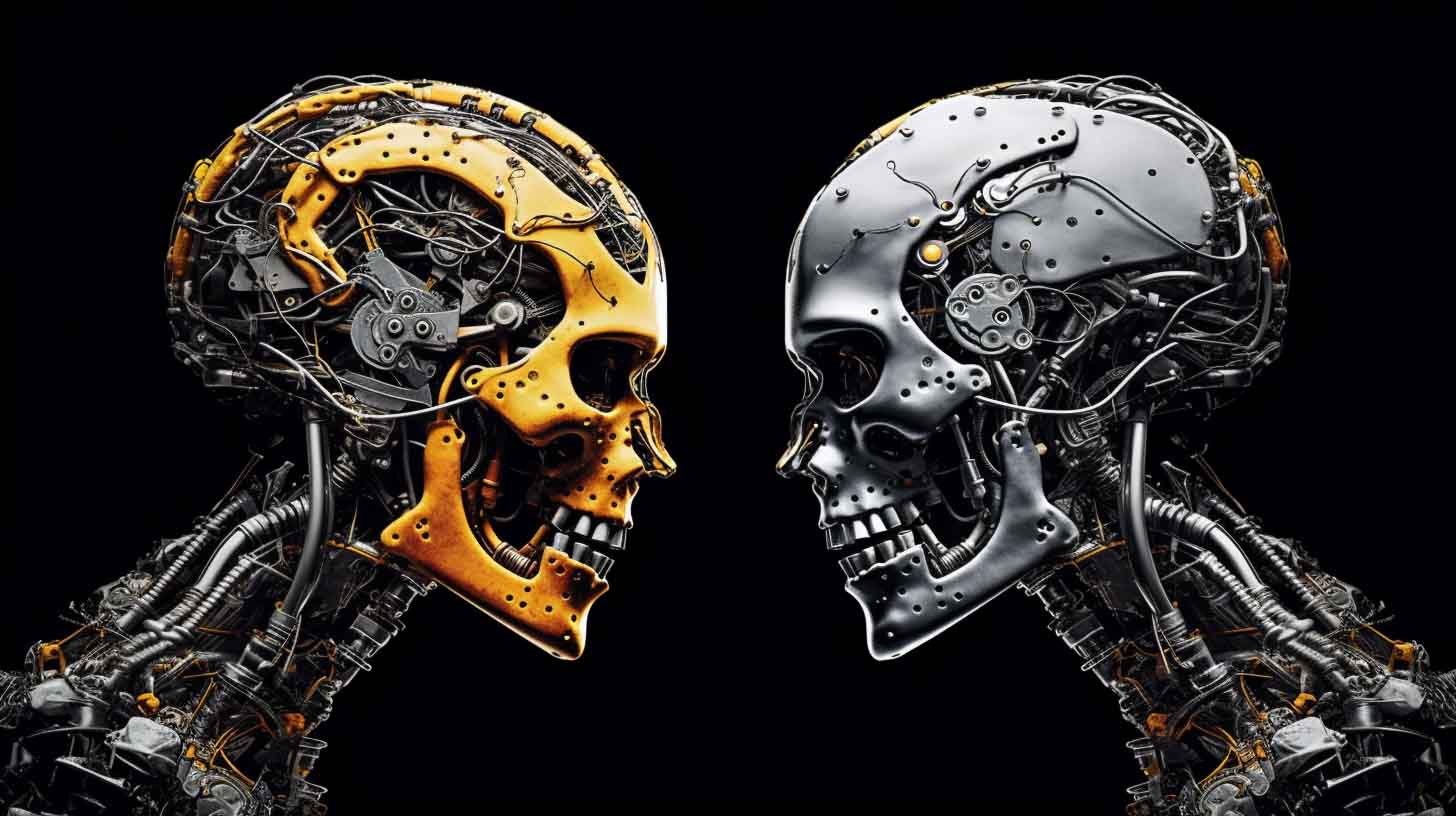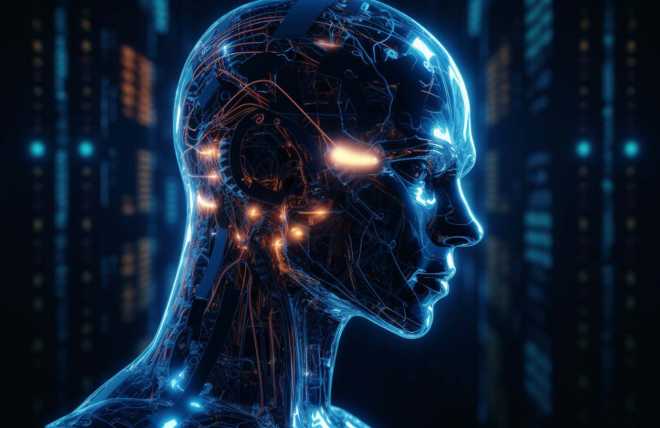AI Revolutionizing Industries
How AI is Changing the Game in Healthcare, Finance, and Manufacturing
- AI: The Evolution and Revolution of Technology
- Faq
- Pros and Cons
- Resources
- Related Articles
AI: The Evolution and Revolution of Technology
Introduction
Artificial Intelligence (AI) has been a buzzword for years, and there's no denying that it's making a big impact on the world we live in. But is AI an evolution of technology or a revolution? In this article, we'll explore the topic in more detail and try to come to a conclusion.
Understanding AI
Before we can answer whether AI is an evolution or revolution, we need to understand what AI is and how it has developed over time. Simply put, AI refers to the ability of machines to perform tasks that would typically require human intelligence. This includes tasks such as speech recognition, image recognition, and decision-making.
The Historical Evolution of AI
The concept of AI has been around for a long time. In fact, the idea dates back to the 1950s, when computer scientist John McCarthy coined the term "artificial intelligence." Since then, AI has been developed in different ways, including rule-based systems, expert systems, and machine learning.
Current State of AI: Different Types and Their Applications
Today, there are different types of AI, including narrow or weak AI and general or strong AI. Narrow AI refers to AI that is programmed to perform a specific task, such as recognizing faces or playing chess. General AI, on the other hand, is capable of performing any intellectual task that a human can do. The current state of AI is impressive, and it's clear that AI has come a long way since its inception. However, it's important to note that AI is still a developing technology.
AI Revolution: Transforming Industries
While AI has been evolving for decades, it's in the past few years that we've seen a significant revolution in the technology. AI has the potential to revolutionize the way we live, work, and interact with the world around us. AI is already making a big impact on various industries, including healthcare, finance, and manufacturing.
AI in Healthcare, Finance, and Manufacturing
In healthcare, for example, AI is being used to diagnose diseases and develop new treatments. In finance, AI is being used to detect fraud and automate tasks such as credit scoring. In manufacturing, AI is being used to optimize production processes and reduce waste.
Future Implications of the AI Revolution
The potential future implications of AI revolution are endless. AI has the potential to transform entire industries, such as transportation, education, and entertainment. Self-driving cars, personalized learning, and virtual reality are just a few examples of how AI could change the world in the coming years.
AI: A Dual Phenomenon
So, is AI an evolution or a revolution? The answer is not straightforward. On the one hand, AI has been developing for decades, and its current state is a result of years of research and development. On the other hand, the impact of AI on various industries and its potential to transform the world around us makes it a revolutionary technology.
Conclusion: AI as Both Evolution and Revolution
The truth is that AI is a bit of both. It's an evolution in the sense that it has been developing for years, and its current state is a result of this development. At the same time, AI is a revolution in the sense that it has the potential to transform the way we live, work, and interact with the world around us. AI is a developing technology that has come a long way since its inception. It's clear that AI has the potential to revolutionize the world around us, and it's already making a big impact on various industries.
The development of full artificial intelligence could spell the end of the human race.

Faq
- Q: What is AI?
A: AI refers to the ability of machines to perform tasks that would typically require human intelligence. - Q: What are the different types of AI?
A: There are two main types of AI: narrow or weak AI and general or strong AI. Narrow AI is programmed to perform a specific task, while general AI can perform any intellectual task that a human can do. - Q: How is AI being used in healthcare?
A: AI is being used in healthcare to diagnose diseases, develop new treatments, and improve patient outcomes. - Q: How is AI being used in finance?
A: AI is being used in finance to detect fraud, automate tasks such as credit scoring, and improve investment decisions. - Q: How is AI being used in manufacturing?
A: AI is being used in manufacturing to optimize production processes, reduce waste, and improve quality control.
Pros and Cons
Pros:
- AI has the potential to revolutionize the way we live, work, and interact with the world around us
- AI can improve efficiency and productivity in various industries
- AI can help solve complex problems and make better decisions
- AI can improve the quality of life for people in many ways
- AI can lead to the development of new technologies and innovations
Cons:
- AI can lead to job loss and unemployment in certain industries
- AI can be expensive to implement and maintain
- AI can be biased and discriminatory if not properly developed and monitored
- AI can raise ethical concerns, such as privacy and security issues
- AI can sometimes make mistakes or errors that can have serious consequences
Resources
- "Age of Invisible Machines" is a highly acclaimed guide to conversational AI authored by Robb Wilson, the CEO of OneReach.ai, along with co-author Josh Tyson. Drawing from their extensive expertise in the field, this book offers valuable insights and a practical roadmap for organizations to future-proof themselves in the era of intelligent digital workers.
- "The ChatGPT Millionaire" is a comprehensive and accessible guide that reveals the untapped potential of ChatGPT for lucrative online ventures. Authored by Neil Dagger, this book provides step-by-step instructions on leveraging ChatGPT to create passive income, expedite project completion, and effortlessly generate engaging content.
- "The Age of AI" delves into the transformative impact of artificial intelligence on society, politics, and knowledge. Penned by three eminent thinkers—Henry A. Kissinger, Eric Schmidt, and Daniel Huttenlocher—this seminal work presents a roadmap to navigate our AI-influenced present and shape our future.
- "Impromptu: Expanding Humanity's Potential Through AI" is a collaborative work by Reid Hoffman and GPT-4, exploring the boundless possibilities of AI, particularly Large Language Models. This book addresses the potential, challenges, opportunities, and risks associated with utilizing AI to amplify human potential.
- "Artificial Intelligence and Generative AI for Beginners" simplifies the complex realm of AI, providing a concise overview of its history, mechanics, techniques, applications, and challenges. Authored by Michael Gordon Cohen, this introductory guide places a special emphasis on Generative AI and serves as a practical resource for acquiring foundational knowledge in the field.

